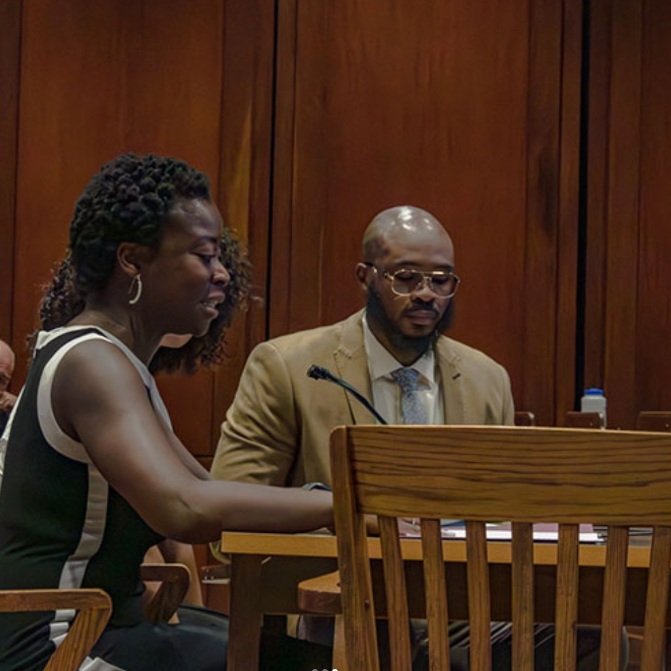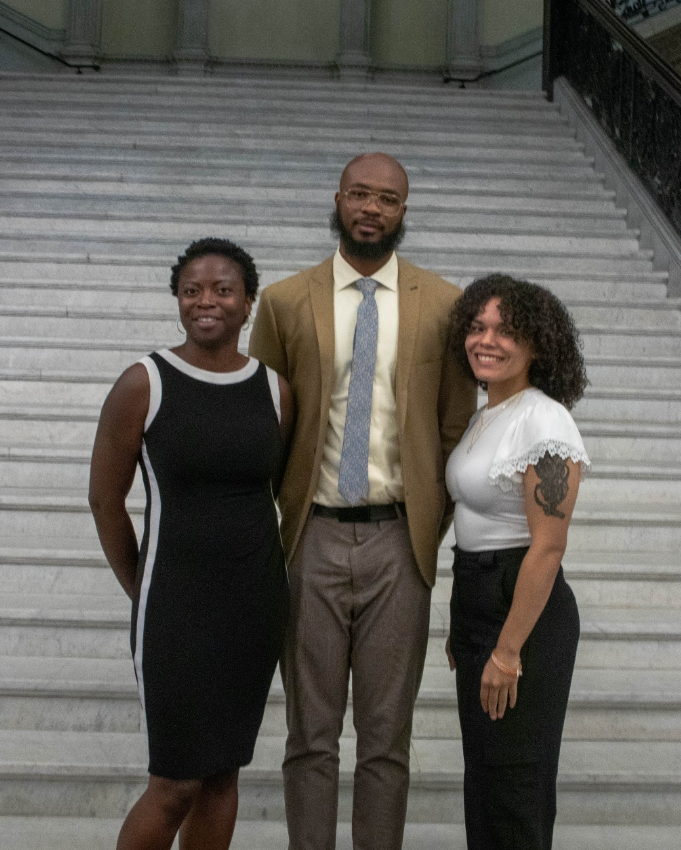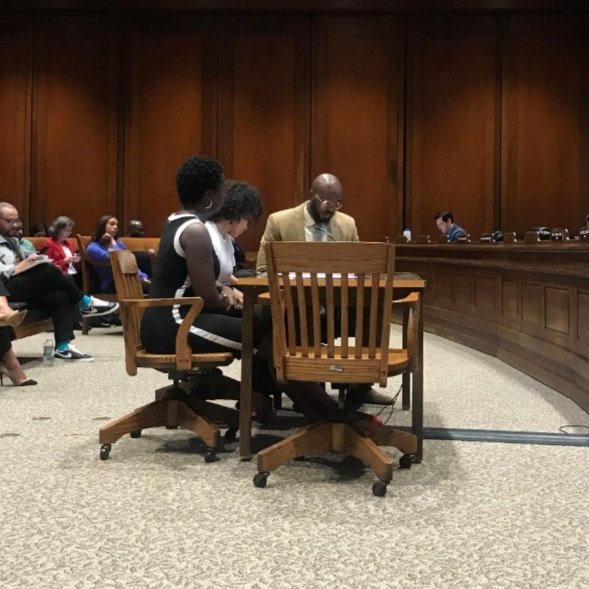Mr. Brown Testifies at the State House in Support of the Educator Diversity Act
Despite the persistent lack of representation that exists among teachers, the issue of educator diversity has remained unaddressed for far too long. In the state of Massachusetts, less than 3% of public-school educators identify as Black, despite there being over 71,000 black students enrolled in our public-school system. And while more than half of our public school students identify, more broadly, as students of color, only 10% of their teachers share that same identity.
On June 26th, our very own 8th-grade math teacher, Mr. Brown took his passion for representation and inclusion beyond the classroom by appearing before the Joint Committee on Education to testify in support of The Educator Diversity Act (Bill H.682). Originally filed in February of 2021, the Educator Diversity Act, if passed, will create alternate pathways to certification & licensure, allocate funds toward a diversity grant program, and force schools to plan and set measurable goals to diversify their workforce. This legislation will help to remove active barriers that exist for aspiring educators of color, and work to correct a disparity which has persisted for over a decade in Massachusetts.
Mr. Brown has been teaching for over 17 years, which has no doubt cultivated his understanding of the importance of educator diversity. However, his passion for representation in the classroom also stems from his own lived experiences as a student. Mr. Brown shares, “I grew up in Harlem, New York, and over the course of my entire school career, I had only two teachers who identified as African American, -- only two individuals who came from the same background as me and shared the same lived experiences.”
As he testified before the Joint Committee on Education, Mr. Brown continued to share, “Prior to these teachers taking me under their wing, I often felt disconnected and out of place at school. These teachers served as role models who inspired me and encouraged me to strive for the highest levels of achievement. Because I felt seen, I began to feel safe at school – my educational trajectory was radically transformed. Representation matters.”
“Testifying at the state building about educator diversity was crucial, as it provided me the opportunity to share my experiences and perspective, and potentially influence policy decisions. I will always remember that, after our group testified, we actually received an applause from the committee – something that is quite unheard of. It gave me a sense of empowerment and fulfillment knowing that my voice was heard on an incredibly important issue. ”
Q&A with Mr. Brown
How do your own experiences as a student inform some of the choices that you make as an educator today and how you lead the classroom?
“Growing up and going to school, I made a lot of poor decisions that I still regret today. I wish I had a me in my life – someone who was there to show me what I should be doing and explain the impact it would have. I wish I had someone to guide me and show me that every choice I make has a consequence. With my students now, I explain every situation and why their choices matter. Sometimes they think I lecture them too much, but I do it so they can understand the consequences of their choices, and where each choice might lead them.”
Why do you believe growing a more diverse educator workforce is so important?
“We live in a diverse world, and so students should see that same diversity reflected in their teachers and mentors. Not having mentors who reflect their own identities impacts students in both the short-term and the long-term. Children need support from a diverse set of teachers, so that they can experience different examples of leadership represented.”
Can you describe the impact it had in your life when you did and didn’t see yourself represented by your teachers?
“In the many instances where I didn't have that, I felt lost. I felt like I had to have my guard up and like I didn’t belong. And I especially felt limited when it came to the resources I had and the people I could talk to. But when I did have those role models in class, it really launched my growth years. Those teachers were able to pull me aside and have conversations with me that I knew were genuine. I knew they truly understood what I was going through and that allowed me to be vulnerable. It really changed my life — being able to go to school knowing there was an adult there who not only saw me, but also supported me.“




